The ever popular fruit juice that is pineapple is often sold either in pureed form or entirely on its own as a standalone drink, primarily sweetened so as to present a distinctly fruity and slightly tart flavor that is unmistakable.
Often incorporated into cocktails and drinks such as the pina colada or various fruit smoothies, certain home chefs may find themselves in need of potential substitutes for this tarty liquid, perhaps because of a food intolerance or from a lack of availability.
Pineapple juice may be substituted with a variety of different drinks and food products, depending on the particular purpose they were originally intended for. These uses range from simple baking flavors to meat marinades and even cocktail ingredients.
Baking Substitutes for Pineapple Juice
Owing to its high sugar content, notable acidity and unique enzymatic profile, pineapple juice is occasionally incorporated into a variety of baking recipes in order to bolster its flavor profile or to initiate a chemical reaction so as to facilitate the baking process.
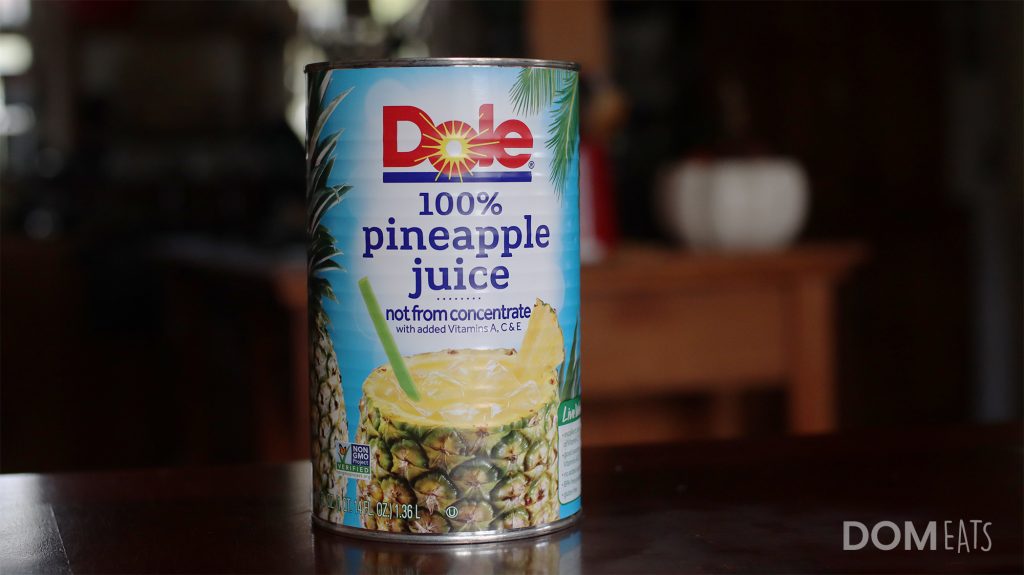
However, owing to the fact that pineapple juice’s chemical composition is somewhat unique, it may be difficult to replicate in said baking recipes, depending on the particular purpose the pineapple juice is meant to serve.
Fortunately, if only the acidity or tart flavor of the pineapple juice must be substituted, there are a variety of options at your disposal.
Grapefruit Juice
While not an exact replication of pineapple juice’s own personal flavor, grapefruit juice presents much the same hints of acidity and notes of sweetness that the former kind of juice does, essentially recreating the same flavor profile in baked goods that would ordinarily obscure the primary taste of either liquid ingredient.
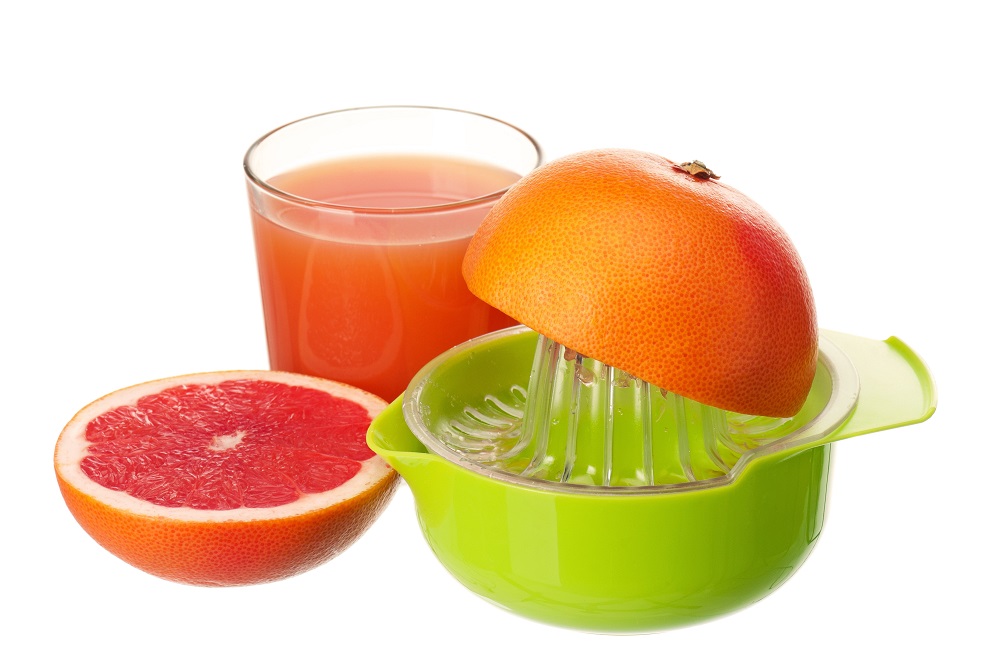
Additionally, the relative pH or acidity of grapefruit juice is within the range of 2.9 to 3.3, presenting a somewhat stronger acidic level than that of pineapple juice, which rests at approximately 3.71 pH on average.
This may or may not be beneficial to the dish being baked, as higher acidity can act as a stronger catalyst in certain culinary chemical reactions as well as present a somewhat tangier flavor, if needed.
Lime Juice
Similar in taxonomy and genealogy to grapefruits themselves, the juice of a lime fruit imparts a significantly more sour taste than that of pineapple juice, with only a tiny measure of sweetness to balance out the flavor profile.
This may or may not be a bad thing, depending on the exact goals of the chef and the preferences of the diners.
In terms of relative acidity, the pH of lime juice hovers somewhere between 2.2 to 2.1, making it a very acidic fluid, especially in comparison to the relatively basic 3.71 pH of pineapple juice.
This may be beneficial in dishes such as custards or savory baked dishes, as the high acidity may not only catalyze any culinary chemical reactions taking place therein but also extend the shelf-life of the dish somewhat, owing to the fact that a large majority of bacteria and fungi have trouble reproducing and surviving in highly acidic environments.
Citric Acid
Perhaps the least commonly imbibed ingredient found on this list, citric acid is oftentimes used in baking as either a leavening agent, as a preservative or as a stand-alone flavor enhancer that imparts a distinctly sour flavor.
Either extracted directly from citrus fruits or produced artificially through specific chemical processes, citric acid makes an excellent substitute for pineapple juice within the context of baking recipes so long as the pineapple juice’s original purpose is either a distinctly sour addition to the recipes flavor profile or by raising the relative pH of the dish itself.
Marinade Substitutes for Pineapple Juice
Another common use for pineapple juice is as a marinade addition or even as the entire marinade itself. This is done because of the unique enzymatic properties that pineapple juice presents, of which may both tenderize most kinds of meat as well as infuse it with a slightly sweet and tarty flavor.
However, certain compounds, techniques or food products found in any common grocery store may replicate this effect, sometimes even better than pineapple juice itself would have.
Meat Tenderizer
Aptly named, meat tenderizer powder surprisingly acts as an excellent meat tenderizer, perhaps even more effectively than pineapple juice itself.
Meat tenderizer is primarily the particular enzymes found within pineapple or similar fruits that act upon organic matter so as to break them down at a cellular level, essentially recreating the effect of pineapple juice.
One could say, in fact, that meat tenderizer is simply a refined form of pineapple juice for this very purpose, and as such makes meat tenderizer powder one of the first choices for substituting pineapple juice in the context of marinating and softening meats.
Papaya Juice
Another fruit which possesses significant meat tenderizing enzymes is the papaya.
Commonly used as an alternative organic meat tenderizer, papaya juice is somewhat more useful than pineapple juice in the context of convenience owing to the fact that even unripe papaya possesses sufficient enough levels of the tenderizing enzyme to be effective.
The primary difference between papaya juice and pineapple juice is the difficulty in using one another, as papaya juice is not as juicy as pineapple, meaning it must be pureed or blended prior to being used in the fashion of a meat tenderizing agent.
Additionally, the particular flavors imparted by the orange fruit are quite some distance from that of pineapple juice, providing a more earthy and melon-like taste as opposed to the normally sweet and tart pineapple itself.
A Meat Mallet or Kitchen Mallet
Though not exactly an edible substitute for pineapple juice, the use of physical force to break down the collagen and fat cells binding tough cuts of meat together is just as effective as any sort of meat tenderizing compound.
The benefit to using this method is that you will likely always have it available once purchased, and it will add no extra flavors or scents to the meat, of which may ruin the total taste profile of a dish incorporating said meat.
Drink Substitutes for Pineapple Juice
Perhaps the original intended use for pineapple juice, a variety of alternative drinks with similar tastes or nutritional benefits exist, though some will not present the same uniquely tart flavor that pineapple normally provides.
Orange Juice
Perhaps one of the most commonly imbibed fruit drinks across the globe, orange juice is an excellent replacement for pineapple juice, both in textural consistency and taste, so long as it is of the pulpy variety, recreating the slightly thick viscosity of pineapple juice.
In terms of nutrition, both orange juice and pineapple juice without any sort of additives possess similar volumes of caloric value, vitamin C, certain types of vitamin B and fiber, though orange juice is the clear winner in the latter department, with nearly double the average level of fiber per 100g of juice.
Pomegranate Juice
While not exactly the best nutritional replacement for pineapple juice, pomegranate juice provides much the same tart yet sweet flavor notes to the drinker, oftentimes barely requiring any additional sugar when in its packaged form.
In terms of vitamins and minerals, pineapple juice is shown to have somewhat more of nearly every type of vitamin across the board, though pomegranate juice contains slightly more minerals, such as potassium and copper.
Nectarine Juice
Similar in appearance and texture to pears, nectarines are an excellent replacement for pineapple juice owing to their quite sweet and cloying flavor, much like commercially packaged pineapple juice that has incorporated sugary additives.
The benefit to using nectarine juice as a pineapple juice substitute is the fact that, despite its sweeter flavor, nectarine juice in its unadulterated form generally has significantly less sugar per volume unit than pineapple juice does, making it a good choice for pre-diabetic individuals.
References
1. JF Morton (1987). “Pineapple; In: Fruits of warm climates”. NewCROP, New Crop Resource Online Program, Center for New Crops and Plant Products, Department of Horticulture and Landscape Architecture, Purdue University
2. Dianne Onstad (2004). Whole foods companion: a guide for adventurous cooks, curious shoppers, and lovers of natural foods. Chelsea Green Pub

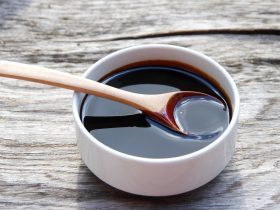
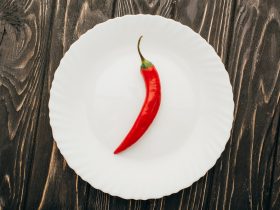
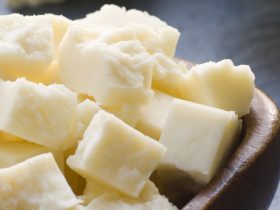
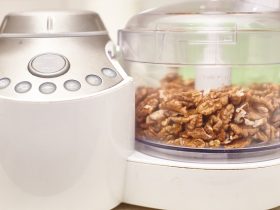
Hi, I'm Dom
Dom Eats was started to help other people fall in love with food. While cooking can feel intimidating, it doesn't have to be.